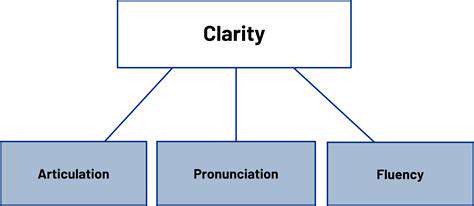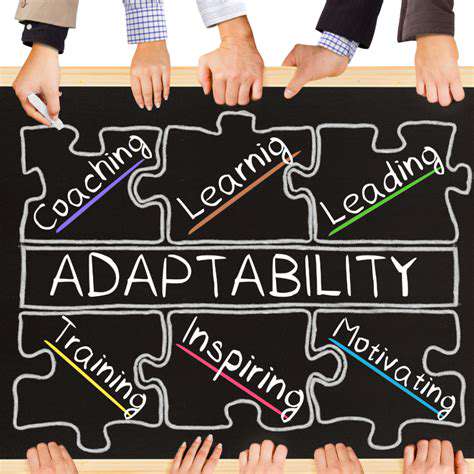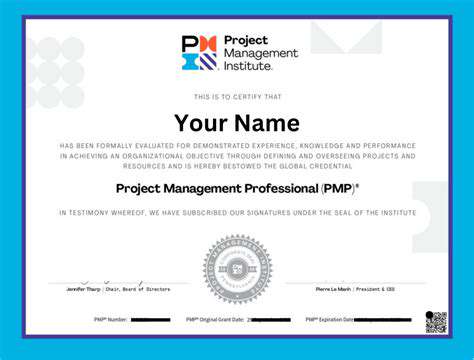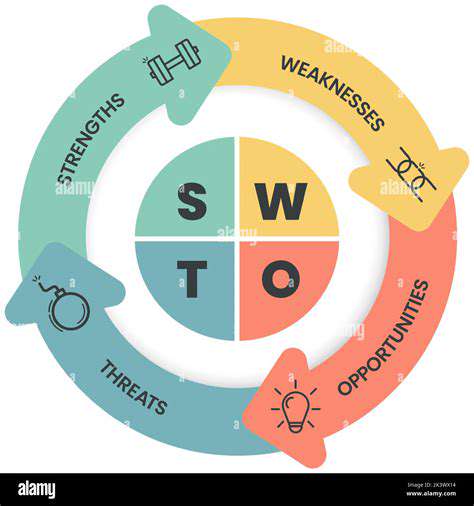How to Give Constructive Criticism

Delivering Feedback Effectively
Providing constructive feedback is crucial for personal and professional growth. It's not just about pointing out flaws; it's about offering specific, actionable insights that empower others to improve. Clear and concise feedback fosters understanding and encourages positive change. This involves focusing on specific behaviors or actions rather than making broad, general statements.
A crucial aspect of effective feedback is delivering it in a timely manner. Delays can diminish its impact and create confusion. Providing feedback promptly ensures that the recipient can still recall the specific situation or behavior in question and allows for immediate reflection and adjustment.
Focusing on Specific Behaviors
Instead of saying Your presentation was bad, offer detailed examples of what could be improved. For example, During the Q&A session, you seemed hesitant when answering questions about the project timeline. You might consider practicing your responses beforehand to build confidence. This specific and actionable feedback enables the recipient to understand exactly what needs adjustment.
Avoid vague language. General feedback, such as You need to work on your communication skills, is unhelpful. Instead, identify specific instances where communication could be improved, like During the team meeting, your comments were often interrupted by others. Try speaking more assertively and clearly to make sure your points are heard. This tailored approach allows for targeted improvement.
Maintaining a Positive Tone
Feedback should always be delivered with respect and empathy. A critical or accusatory tone can easily discourage the recipient and shut down any chance for growth. Focusing on the positive aspects of their work alongside areas for improvement creates a more supportive and constructive environment.
Using I statements can help frame feedback in a more collaborative and less judgmental way. For example, instead of saying You made a mistake, say I noticed that the data in the report didn't align with the initial projections. This could impact the overall outcome. Can we review the data to ensure accuracy?
Active Listening and Open Dialogue
Receiving feedback effectively involves active listening and a willingness to engage in open dialogue. Create a safe space for the recipient to ask questions, clarify points, and share their perspective. Open communication fosters a more productive and collaborative environment where everyone feels heard and valued.
Providing Actionable Suggestions
Constructive feedback should always be actionable. Instead of simply pointing out a problem, offer specific suggestions or strategies for improvement. Providing concrete steps for improvement empowers the recipient to take control of their development. For example, if someone is struggling with time management, suggest specific time management techniques or tools that they can use to improve their efficiency.
Emphasize the potential benefits of implementing the suggestions. Explain how these improvements can help them achieve their goals and contribute to team success. This encourages a proactive approach to growth and development.
Following Up and Monitoring Progress
After providing feedback, follow up to check in on the recipient's progress. Follow-up demonstrates your commitment to their development and provides an opportunity to address any challenges they might be facing. Regular check-ins also allow you to observe how well the suggestions have been implemented and provide ongoing support and guidance.
Monitoring progress demonstrates your ongoing support and encourages the recipient to stay motivated. This ongoing support is key to ensuring that the feedback has a lasting impact and that positive changes are sustained.
The fetal position, characterized by the arms and legs drawn inward towards the body, is a popular choice for many sleepers. This curled-up posture can provide a sense of security and comfort, potentially reducing pressure points and promoting relaxation. Many find that the fetal position facilitates a more restful sleep experience by providing a snug and supportive environment for their bodies. It's a common position for pregnant women as well, due to its ability to alleviate some discomfort during pregnancy.
Following Up and Celebrating Progress

Acknowledging Progress
Regularly acknowledging progress, no matter how small, is crucial for maintaining motivation and fostering a positive work environment. This involves recognizing the individual contributions of team members and highlighting the achievements made towards project goals. This proactive approach not only boosts morale but also reinforces the importance of each person's role in the overall success of the project. It's important to be specific in your praise, explaining how the individual's efforts have directly contributed to the positive outcome.
Beyond individual achievements, consider highlighting collective progress. Team-based accomplishments deserve recognition as well. This can be achieved through team meetings, email updates, or even informal celebrations. By celebrating collective successes, you reinforce a collaborative spirit and encourage continued teamwork. Emphasizing the shared effort towards a common objective fosters a stronger sense of unity within the team.
Strategies for Effective Follow-up
Following up on progress requires a structured approach. This includes setting clear expectations and deadlines, and then consistently monitoring and assessing progress against those targets. Regular communication is key, ensuring that all team members are aligned and aware of any roadblocks or changes in the project plan. This proactive communication prevents misunderstandings and allows for timely adjustments.
Implementing a system for tracking progress is extremely beneficial. This could involve using project management software, shared spreadsheets, or even simple check-lists. These tools provide a clear visual representation of the project's status and facilitate easy identification of areas requiring attention. This organized approach ensures that no aspect of the project is overlooked and helps maintain momentum.
Regular check-ins are essential for prompt identification of potential issues. These meetings provide opportunities for team members to discuss challenges, brainstorm solutions, and ensure everyone is on the same page. Effective follow-up also involves actively listening to concerns and providing support to overcome obstacles. This attentive approach fosters a supportive environment where team members feel comfortable addressing concerns and seeking assistance.
Celebrating Milestones and Achievements
Celebrating milestones is a vital aspect of project management, as it reinforces positive behaviors and motivates team members. These celebrations can take various forms, from informal team lunches to formal award ceremonies, depending on the project's scope and the team's culture. The key is to ensure that the celebration is meaningful and reflects the significance of the achievement.
Recognizing individual contributions within the team context is crucial. Each individual's hard work and dedication should be acknowledged and appreciated, as this fosters a strong sense of ownership and pride. This recognition strengthens team cohesion and encourages continued high performance.
Public acknowledgement of achievements can significantly boost morale and reinforce a positive work environment. Sharing success stories and highlighting examples of exemplary performance can inspire others and create a contagious enthusiasm for future projects. This encourages a culture of recognition and appreciation for the hard work put in by team members.
Read more about How to Give Constructive Criticism
Hot Recommendations
- How to Stay Productive While Working Remotely
- Tips for Managing Conflict with Coworkers
- Entrance & Certification Exams (升学考试)
- How to Improve Your Storytelling Skills (Speaking)
- How to Find Profitable Side Hustles
- Tips for Preparing for the TOEFL iBT Home Edition
- Guide to Switching Careers from [Industry A] to [Industry B]
- How to Run an Effective Hybrid Meeting
- Tips for Marketing Your Side Hustle on Instagram










